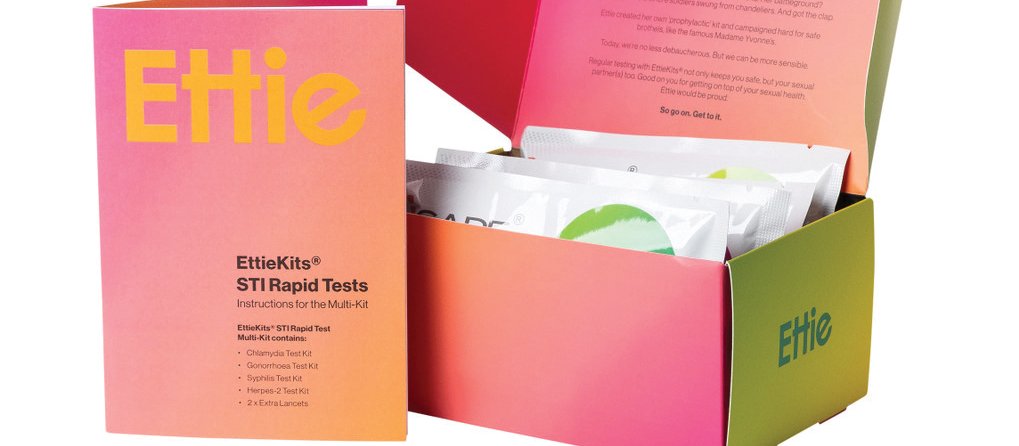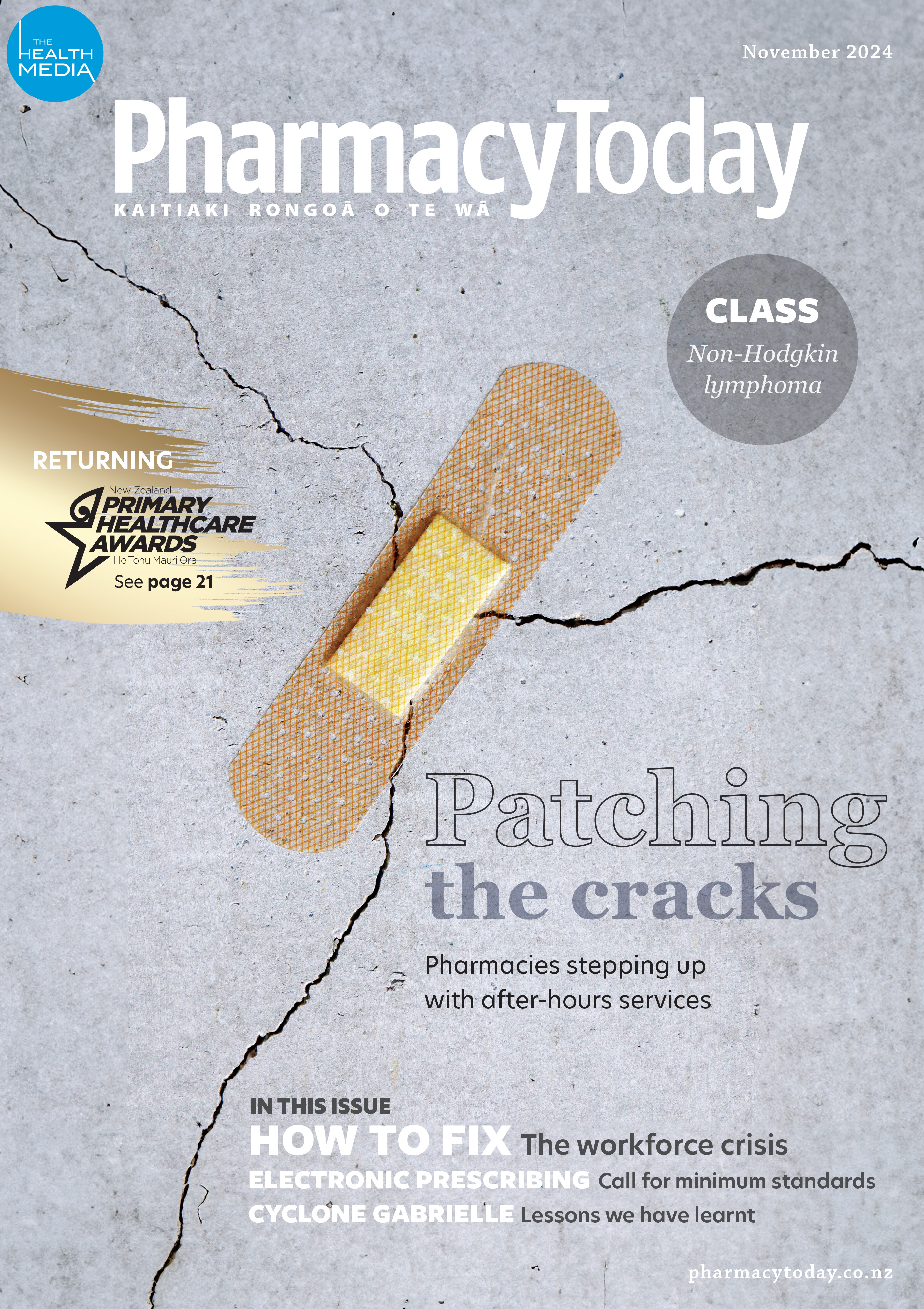Academic pharmacist Nataly Martini highlights the importance of understanding non-Hodgkin lymphoma and pharmacists’ roles in managing this condition
Concerns raised over sale of STI self-test kits
Concerns raised over sale of STI self-test kits

- EttieKits are a product that contains four single-use self-testing kits for chlamydia, gonorrhoea, herpes-2 and syphilis.
- Kit users follow a process similar to a COVID-19 rapid antigen test, taking a swab of their genitals or a finger prick in the case of the herpes test.
- According to the New Zealand Herpes Foundation and a joint statement from several health experts, the tests are not fit for purpose.
If Ettie Rout was alive today, she would be having a fit because she wouldn’t want her name on these kits
An online pharmacy has pulled the STI self-testing product EttieKits from its website after concerns were raised by the New Zealand Herpes Foundation that the tests are not fit for purpose.
The kits are named after New Zealand sexual health pioneer Ettie Rout and supplied by Ettie, a company created by Project Gender founders Angela Meyer, Tania Domett and Erin Jackson.
Ettie is standing by its products, claiming they are accurate and meet manufacturing standards for medical devices.
The kits sell for around $90 and were available via online retailers including Pharmacy Direct, Mighty Ape and the EttieKits website.
Pharmacy Direct confirms it took the products off its site last week and it appears that as of this morning (29 October) they are no longer available on Mighty Ape.
Each kit contains four single-use self-testing kits for chlamydia, gonorrhoea, herpes-2 and syphilis.
Users take a swab from their genitals and mix it in an extraction tube before squeezing drops of the solution onto a test card, following a process similar to a COVID-19 rapid antigen test.
For the herpes kit, the user does a finger-prick test and applies their blood directly to the test card with a dropper, as well as applying a sample buffer solution.
Results will appear in 15 to 20 minutes and Ettie claims the tests are 98 per cent accurate.
While Ettie supplies the tests in New Zealand, according to Pharmacy Direct, they are manufactured by a Singaporean company, JAL Medical.
The New Zealand Herpes Foundation claims the EttieKits are not fit for purpose and should not be sold in New Zealand.
Foundation trustee and registered nurse Claire Hurst says the tests are dangerous because they are inaccurate and risk giving users false confidence that they don’t have an STI.
“If Ettie Rout was alive today, she would be having a fit because she wouldn’t want her name on these kits,” Ms Hurst says.
Even if the tests were accurate, blood tests are not used to diagnose herpes as around 80 per cent of the population carries either the type 1 or 2 herpes simplex virus, Ms Hurst says.
In most cases HSV is harmless and people either have no symptoms or get cold sores, so diagnosis (which is done via a swab test from a sore) usually only occurs when sores appear on the genitals.
The latest advice on the management of genital herpes in New Zealand for health professionals is available on the foundation’s website.
Ms Hurst thinks Ettie is selling the kits with the best of intentions but, unfortunately, they and others supporting the tests are not health experts and have believed the manufacturers’ incorrect claims.
She hopes when confronted by scientific evidence, they will stop selling the products.
Ms Hurst has contacted Pharmacy Direct and Mighty Ape about her concerns, she says, and also reported them to the Ministry of Health. She is also in the process of organising a meeting with Project Gender.
Pharmacy Today approached Ettie for comment and was emailed a statement by Ms Jackson.
“At EttieKits, we stand firmly behind the accuracy and reliability of our STI rapid tests. These tests are sourced from a globally recognized supplier who manufactures under strict quality standards, the ISO 13485 Medical Device Standard,” the statement says.
“Clinical trials as recent as 2023 have validated the performance of our kits, showing >98% accuracy and >98% specificity.
“We operate fully within New Zealand’s legal framework and work with local health professionals to provide clear, supportive resources for patients. Our mission is to make STI testing safe, accessible, and stigma-free across Aotearoa.”
Pharmacy Direct director Greg Macpherson says his company made the decision to stop selling the kits after hearing the Herpes Foundation’s concerns and seeing the expert evidence it presented.
“There is enough doubt in our minds that we have taken the product off the shelves,” Mr Macpherson says.
It is “a shame” what has happened, he says, as there would be a huge benefit to having STI home-testing kits available, which is why Pharmacy Direct initially supported the kits.
Mr Macpherson is open to returning the products for sale if satisfactory evidence is presented that they are safe and effective and are approved by WHO, which is a claim made on the manufacturer’s website.
In April, the New Zealand Point of Care Testing Advisory Group (NZ POCT AG), the New Zealand Microbiology Network (NZMN), the New Zealand Sexual Health Society (NZSHS), the Northern Region Point of Care Testing Network (NR POCT Network), and the New Zealand branch of the Australasian Society for Infectious Diseases (NZ ASID) released a joint position statement advising that currently available over-the-counter antigen-based point of care STI tests for chlamydia, gonorrhoea, and herpes are not fit for purpose. Pharmacy Today understands the statement was created in response to the launch of EttieKits in New Zealand.
The groups state that in the interest of public safety, these tests should not be promoted, marketed, sold or used in New Zealand, and call for urgent regulation. The lack of this has created a void that enables the marketing and selling of POCT devices and kits to a public who trust quality claims made by suppliers and manufacturers, the statement says.
While EttieKits are not named in the statement, the experts agreed currently available antigen-based point of care tests for chlamydia and gonorrhoea are not clinically reliable due to low sensitivity, missing between 37 and 63 per cent of chlamydia infections and 30 to 88 per cent of gonorrhea infections.
Medsafe group manager Chris James says in an emailed statement that Medsafe was recently made aware of concerns about the kits and is investigating further.
JAL Medical has been approached for comment.






